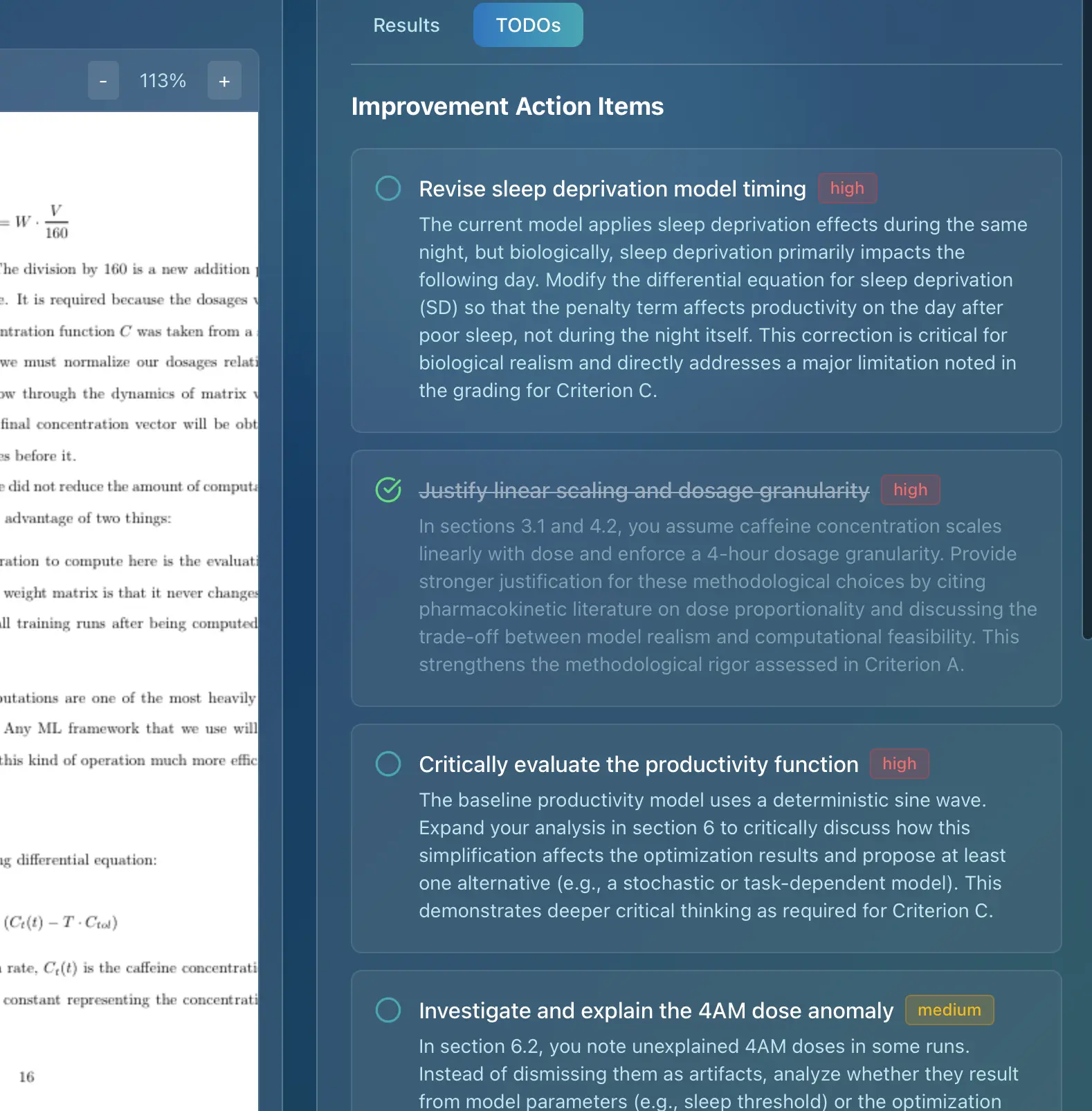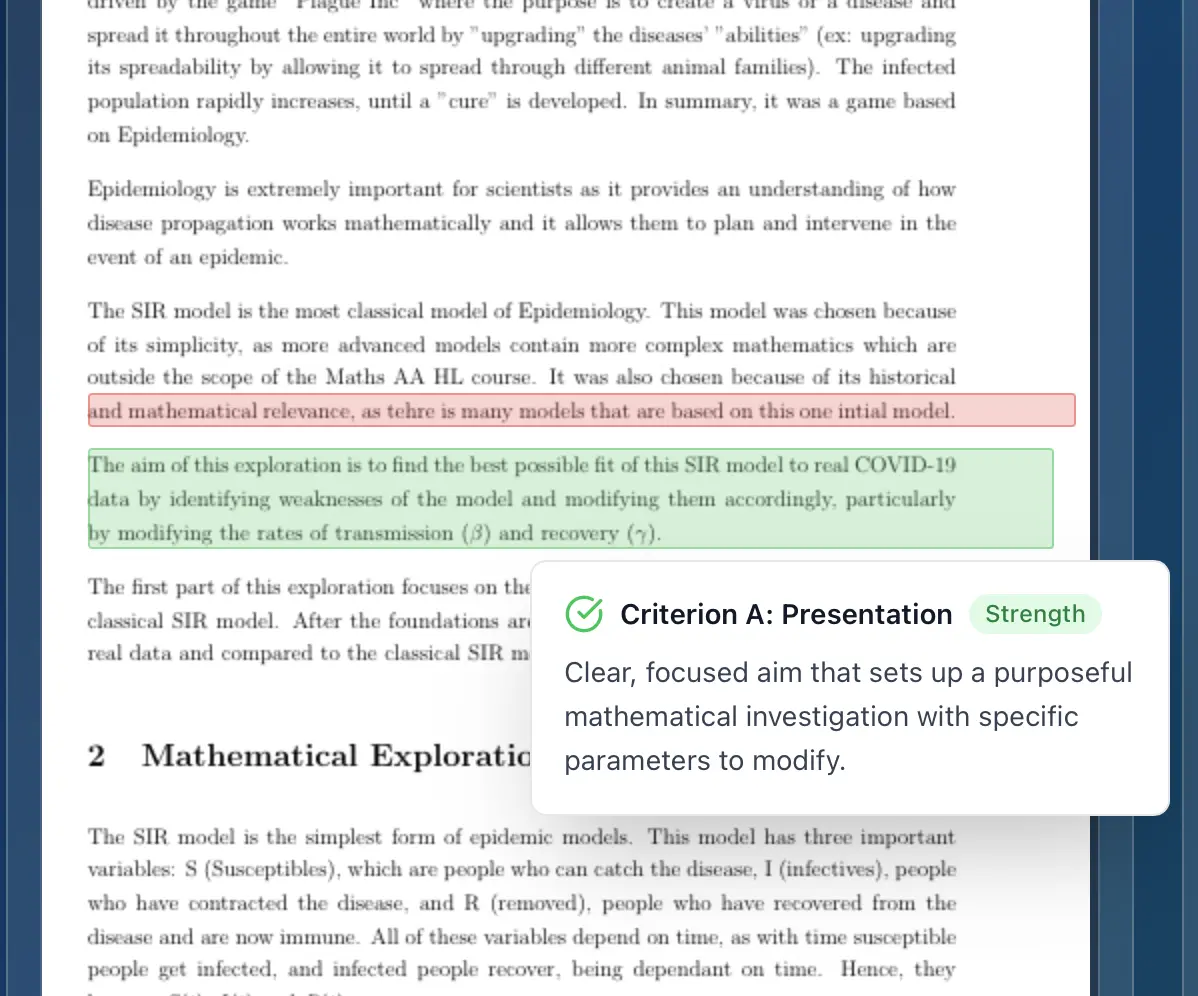Time Management Strategies for IB Students
Are you an IB student feeling overwhelmed by the sheer volume of coursework, Internal Assessments (IAs), Extended Essays (EEs), and exam preparations? You're not alone. Effective time management is crucial for success in the International Baccalaureate (IB) program. This guide provides actionable time management strategies specifically tailored for IB students, helping you balance your academic workload, extracurricular activities, and personal life. We'll cover everything from prioritizing tasks and creating a realistic schedule to avoiding common pitfalls and leveraging technology to streamline your workflow. By implementing these strategies, you can reduce stress, improve your grades, and enjoy a more balanced and fulfilling IB experience.
Why Time Management is Critical for IB Success
The IB Diploma Programme is renowned for its rigorous curriculum and demanding workload. Students juggle six subjects, the Theory of Knowledge (TOK) course, the Extended Essay (EE), and Creativity, Activity, Service (CAS) requirements. Without effective time management, it's easy to fall behind, feel overwhelmed, and ultimately underperform.
Good time management allows you to:
- Reduce Stress: A well-planned schedule minimizes last-minute cramming and reduces anxiety.
- Improve Grades: Allocating sufficient time for each subject and assessment leads to better understanding and higher scores.
- Balance Your Life: Time management isn't just about academics; it's about creating space for hobbies, social activities, and personal well-being.
- Develop Essential Skills: Time management is a valuable life skill that will benefit you in university and beyond.
Struggling with IB Assessments?
Get instant, detailed feedback on your work with AI that understands IB criteria.

Creating Your IB Time Management Plan: A Step-by-Step Guide
Here's a practical, step-by-step guide to creating a time management plan that works for you:
1. Assess Your Current Time Usage
Before you can improve your time management, you need to understand how you're currently spending your time.
- Time Audit: For one week, track your activities in a time log. Be honest and detailed. Note everything from study sessions to social media browsing.
- Identify Time Wasters: Analyze your time log to identify activities that consume a significant amount of time without contributing to your goals. Common culprits include social media, excessive gaming, and procrastination.
2. Set Realistic Goals
Setting clear and achievable goals is essential for effective time management.
- Break Down Large Tasks: Divide large assignments, like the Extended Essay or Internal Assessments, into smaller, more manageable tasks.
- SMART Goals: Use the SMART framework to set goals that are Specific, Measurable, Achievable, Relevant, and Time-bound. For example, instead of "Improve my Business IA," set a goal like "Complete the research section of my Business IA by Friday at 5 PM."
3. Prioritize Tasks
Not all tasks are created equal. Prioritize tasks based on their importance and urgency.
- Eisenhower Matrix: Use the Eisenhower Matrix (Urgent/Important) to categorize tasks.
- Urgent and Important: Do these tasks immediately. (e.g., Finishing an assignment due tomorrow)
- Important but Not Urgent: Schedule these tasks. (e.g., Planning your Extended Essay)
- Urgent but Not Important: Delegate these tasks if possible. (e.g., Responding to non-essential emails)
- Neither Urgent nor Important: Eliminate these tasks. (e.g., Excessive social media browsing)
- ABC Method: Assign each task a letter:
- A: High-priority tasks that must be done.
- B: Medium-priority tasks that should be done.
- C: Low-priority tasks that could be done if time allows.
4. Create a Schedule
A well-structured schedule is the cornerstone of effective time management.
- Use a Planner: Choose a planner that suits your needs, whether it's a physical planner, a digital calendar, or a combination of both.
- Allocate Time Blocks: Allocate specific time blocks for each subject, assessment, and activity. Be realistic about how long each task will take.
- Schedule Breaks: Don't forget to schedule regular breaks to avoid burnout. Short breaks every hour can significantly improve focus and productivity.
- Flexibility: Build some flexibility into your schedule to accommodate unexpected events or delays.
5. Implement Effective Study Techniques
Efficient study techniques can help you make the most of your study time.
- Pomodoro Technique: Study in focused 25-minute intervals, followed by a 5-minute break. After four intervals, take a longer break of 20-30 minutes.
- Active Recall: Test yourself regularly on the material you're learning. This is more effective than passively rereading notes.
- Spaced Repetition: Review material at increasing intervals to reinforce learning and improve retention.
Common Challenges/Mistakes in IB Time Management
Even with the best intentions, IB students often face challenges in managing their time effectively. Here are some common mistakes and how to avoid them:
- Procrastination:
- Challenge: Putting off tasks until the last minute.
- Solution: Break down large tasks into smaller, more manageable steps. Use the "two-minute rule": If a task takes less than two minutes, do it immediately.
- Perfectionism:
- Challenge: Spending too much time on a task, striving for unattainable perfection.
- Solution: Set realistic expectations and focus on completing the task to a satisfactory standard, rather than striving for perfection. Remember that "done is better than perfect."
- Multitasking:
- Challenge: Trying to do multiple tasks simultaneously, which can reduce focus and productivity.
- Solution: Focus on one task at a time. Eliminate distractions and give your full attention to the task at hand.
- Lack of Prioritization:
- Challenge: Not prioritizing tasks effectively, leading to wasted time on less important activities.
- Solution: Use the Eisenhower Matrix or ABC method to prioritize tasks based on their importance and urgency.
- Burnout:
- Challenge: Overworking yourself without taking adequate breaks, leading to exhaustion and reduced productivity.
- Solution: Schedule regular breaks and prioritize self-care activities, such as exercise, relaxation, and spending time with friends and family.
Pro Tip: Get AI-Powered Grading
Stop second-guessing your grades. Get instant feedback aligned with official IB rubrics.

Advanced Time Management Strategies for IB Students
Once you've mastered the basics of time management, you can implement more advanced strategies to further optimize your productivity.
- Batching: Group similar tasks together and complete them in a single block of time. For example, dedicate a specific time slot to responding to emails or grading practice essays.
- Timeboxing: Allocate a fixed amount of time to a specific task. This can help you stay focused and avoid spending too much time on a single task.
- Eat the Frog: Tackle your most challenging or unpleasant task first thing in the morning. This can help you get it out of the way and start your day with a sense of accomplishment.
- Delegate: If possible, delegate tasks to others. This can free up your time to focus on more important activities.
- Learn to Say No: Don't overcommit yourself. Learn to say no to requests that will overload your schedule or distract you from your priorities.
Technology and Modern Assessment: The Role of AI in IB
Technology is transforming the way IB students learn and are assessed. AI-powered tools are becoming increasingly valuable for both students and teachers. For example, AI can help students identify areas for improvement in their writing, while also helping teachers provide more consistent and detailed feedback.
This is where Marksy comes in. As a leading AI grading assistant specifically designed for the International Baccalaureate, Marksy helps teachers provide instant, accurate, and detailed feedback on student work based on official IB rubrics. Marksy uses official IB criteria to ensure accuracy and fairness, providing rubric-aligned scoring, detailed criterion-by-criterion feedback, and suggestions for improvement. This not only saves educators valuable time but also helps students understand exactly how to improve their work and achieve their academic goals. By automating the tedious aspects of grading, Marksy allows teachers to focus on providing personalized instruction and support to their students.
The use of AI in assessment also promotes consistency and objectivity. By applying the same criteria to all student work, AI can help reduce bias and ensure that all students are evaluated fairly. This can be particularly beneficial in subjects like English Literature or History, where subjective interpretations can sometimes influence grading.
Conclusion: Take Control of Your Time and Achieve IB Success
Effective time management is essential for success in the IB Diploma Programme. By implementing the strategies outlined in this guide, you can reduce stress, improve your grades, and balance your academic workload with your personal life. Remember to assess your current time usage, set realistic goals, prioritize tasks, create a schedule, and implement effective study techniques. Don't be afraid to experiment with different strategies to find what works best for you.
Ready to take your IB performance to the next level? Try Marksy for free today and experience the power of AI-driven feedback. See how Marksy can help you understand your strengths and weaknesses, improve your scores, and achieve your academic goals. Sign up for a free trial now and unlock your full potential!